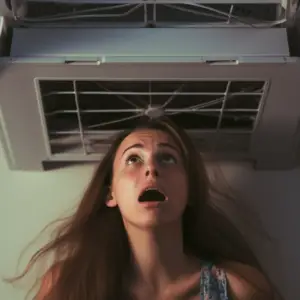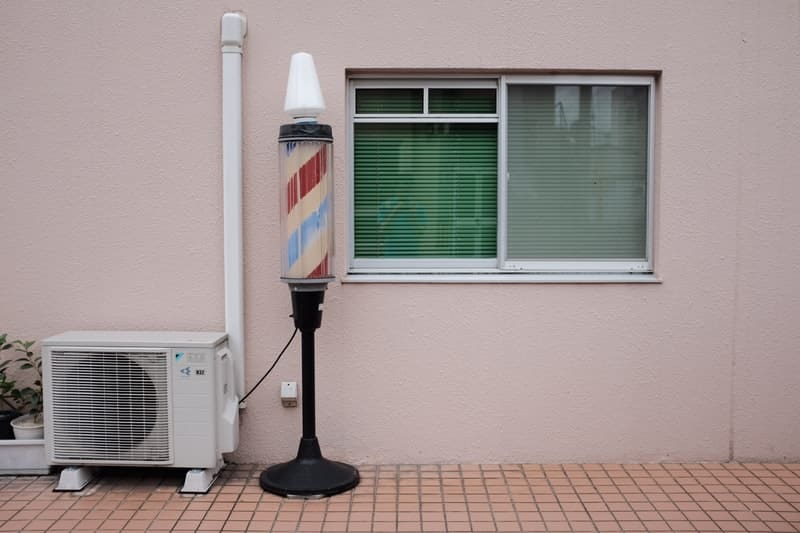Air conditioning makes life bearable and more so in the hottest of months. During these hot days, your air conditioning could remain running for hours on end sometimes for the entirety of the day and night.
Without it, temperatures would render our warm-blooded selves, ineffectual dehydrated zombies.
Modern air conditioning units are nearly completely silent. Aside from a nearly inaudible whirring noise while it is running, the sound of your air conditioner should not be a nuisance.
Should you detect a change or marked increase in that noise, it may be time to check for mechanical issues with your air conditioner.
Besides, the unusual noise is likely not the smooth sound of a working air conditioner and will become a pesky disturbance that you can’t ignore.
If your air conditioner has started making a pulsating noise, it may be caused by some emerging defaults or issues some of which you can fix easily while others may require the help of an HVAC (Heating, Ventilation and Air Conditioning) expert.
Table of Contents
Air conditioner making pulsating noise? Here are the Reasons

A pulsating noise sounds like a very fast heartbeat or like the blades of the propeller on a helicopter but much quieter.
There are different types of air conditioners and though all work the same their differences may inform you of what is the likely problem and how to fix it.
In almost every instance, a pulsating noise is due to a loose component, a damaged part, or excessive vibration. The following are the possible defaults and their fixes.
The Compressor
The compressor is the central unit of your air conditioner responsible for cooling the temperature in your home by cooling the air getting into it and releasing it back into your space.
When your AC is on, the compressor vibrates but is usually held in place firmly minimizing the noise.
If there is wiggle room the compressor will vibrate freely possibly even hitting against other components and making that annoying pulsating noise. This is one that is easy to fix.
Open the panel to reveal the compressor which should look like a small car battery. Inspect the platform the compressor sits on for damage.
If the platform is made of plastic, it may have cracked and needs to be replaced. A wooden platform would be better suited for the platform than plastic.
Compressors usually have rubber isolation feet on the bottom and if these are missing or have come off, could be the reason for the noise. Fix or replace the rubber fittings to hold the compressor steady thus controlling the vibration.
You should also tighten the screws that hold the compressor to the platform if they have come loose.
Refrigerant Wires
Refrigerant wires could also be the cause of that annoying pulsating sound. If they are lying against the wall of the conditioning unit they could be hitting the wall while your AC is on generating a noise especially if your refrigerant wires are not fitted with noise-dampening insulation to prevent this.
To fix this, move the wires away from the walls of the unit and for the insulation, contact an HVAC repairman to advise you on what if anything can be done to insulate the refrigerant wires and prevent the noise from recurring.
Fan Motor
The fan motor is the unit responsible for rotating the fan blades and dissipating cool air into your home. If it is damaged, it may not rotate effectively. This could generate the pulsating noise indicating a problem.
There is not much that you can do in this case by yourself. The fan motor may need to be replaced which requires expertise. Contact an HVAC repair expert if you suspect the fan motor is malfunctioning.
Fan Blades and Fan Coils
The fan blades are specifically shaped to facilitate the smooth flow of air against them. Structural damage to the blades distorts this airflow and the result is a pulsating noise. Damaged blades could also scrape against other parts causing the noise.
If the fan blades are particularly dirty and the dirt has encrusted forming an extra layer on the blades, they could become heavy and rotate with difficulty.
Clean the blades if they are dirty and place them back. If they are damaged, replace them. This should eliminate the pulsating noise.
Fan coils that have sustained structural damage could also cause pulsating noise so replace broken or bent fan coils.
Low Voltage
Air conditioners have specified voltage requirements for them to run efficiently. Check that your voltage is sufficient to support your air conditioning units.
Low voltage disrupts the running of the fan motor and the compressor sometimes causing irreversible damage.
You may need to consult an expert to review your home for electrical defaults that could lower the voltage to your air conditioner.
Loose Components

After years of use, some joints and screws begin to come loose. Window air conditioners are particularly prone to this problem. This could cause your air conditioner to produce a pulsating noise.
Simply tighten all screws and joints you can reach which should resolve the pulsating noise.
If you encounter parts that need lubrication, apply grease to smooth their functioning.
Dry bearings scrape against each other creating friction and possibly causing a pulsating noise. If not dealt with, this will get worse causing damage that may be expensive to repair.
Sturdy Support
Make sure your air conditioner is positioned properly. If it is mounted against a wall, check to make sure it is firmly held in place. Window air conditioners could become unsteady following years of use.
The vibration of the compressor while the air conditioner is unstable will create a pulsating noise.
Fix your air conditioner firmly against the wall and tighten the screws to hold it in place. The pulsating noise should cease if this is the problem.
Finally…
If you cannot get rid of the pulsating noise despite trying all of the above, contact an expert to diagnose and fix the issue.
Ensure that you have turned off and unplugged your AC unit whenever you want to open it up. Electrocution is a very real danger here.


